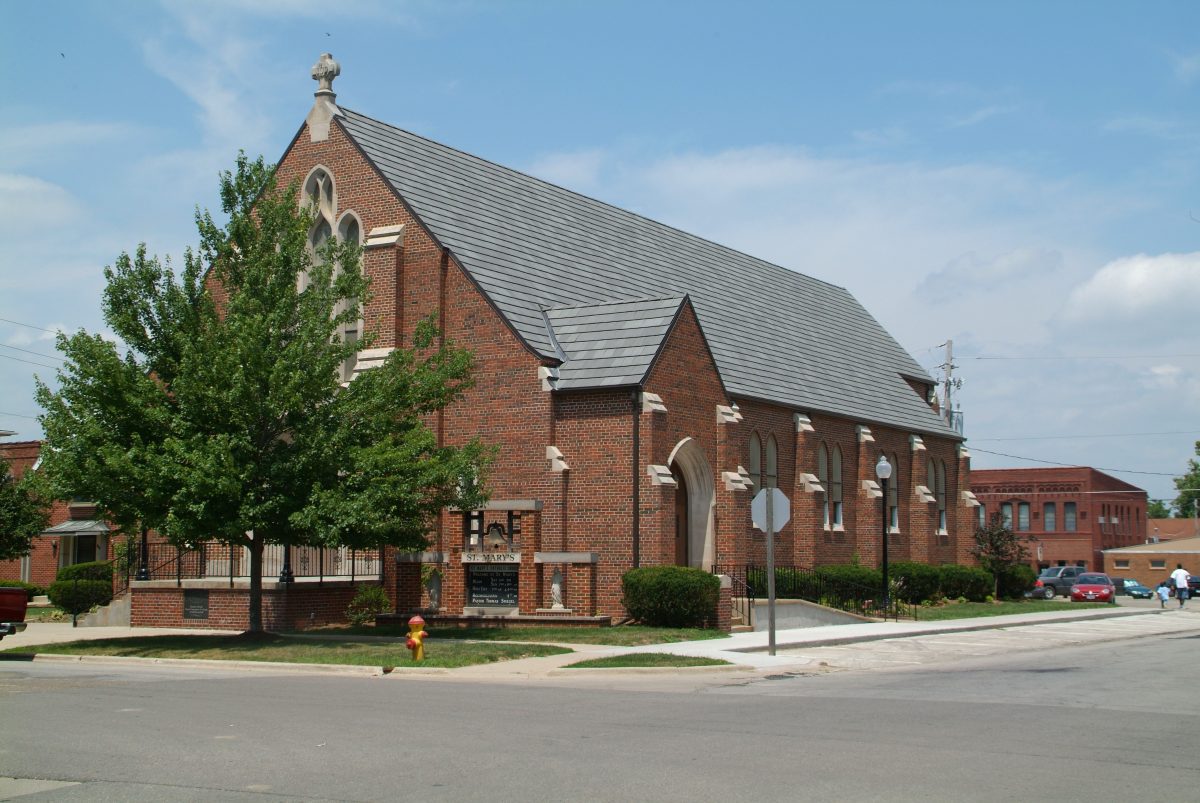Did you know that outside of the Mass the most important prayer of the Church is the Liturgy of the Hours? This traditional prayer can be prayed by anyone and is a great way to prayerfully engage the scriptures throughout the day.
Praying the Liturgy of the Hours
Praying the Liturgy of the Hours has been made easy thanks to many online resources. You can download an app like iBreviary or the Laudate. Both apps are free and will take you seamlessly through the prayer.
The Liturgy of the Hours can also be found online at universalis.com. The different hours of prayer are listed out on the toolbar on the left side of the page.
There is no wrong way to pray the Divine Office. One can sit and read straight through the office, as the goal is simply to spend time in prayer with the scriptures. So while there may be traditional postures used when prayed in a group setting, this should not distract from the prayer. Praying the Office in private, either alone or with a small group such as your family should be done in whatever manner works best for you.
When prayed in public the posture is as follows:
-
- All stand during the introduction to the Office and during the opening hymn, which is optional.
- All sit during the Psalms and readings (When prayed in a group, the group will split into two sides. With side one and two taking turns reading each paragraph of the Psalms.)
- All stand during the Gospel
- All stand during the Canticle (Magnificate, Benedictus, or Nunc Dimittis) and the concluding prayers.
- All make the Sign of the Cross at the start of each Hour and at the start of the Canticle.
Office of Readings
“The office of readings seeks to provide God’s people, and in particular those consecrated to God in a special way, with a wider selection of passages from sacred Scripture for meditation, together with the finest excerpts from spiritual writers. Even though the cycle of scriptural readings at daily Mass is now richer, the treasures of revelation and tradition to be found in the office of readings will also contribute greatly to the spiritual life” (General Instruction of the Liturgy of the Hours [GILH], no. 55).
Morning Prayer (Lauds)
“As is clear from many of the elements that make it up, morning prayer is intended and arranged to sanctify the morning. St. Basil the Great gives an excellent description of this character in these words: “It is said in the morning in order that the first stirrings of our mind and will may be consecrated to God and that we may take nothing in hand until we have been gladdened by the thought of God, as it is written: ‘I was mindful of God and was glad’ (Ps 77:4 [Jerome’s translation from Hebrew]), or set our bodies to any task before we do what has been said: ‘I will pray to you, Lord, you will hear my voice in the morning; I will stand before you in the morning and gaze on you’ (Ps 5:4-5).”
“Celebrated as it is as the light of a new day is dawning, this hour also recalls the resurrection of the Lord Jesus, the true light enlightening all people (see Jn 1:9) and “the sun of justice” (Mal 4:2), “rising from on high” (Lk 1:78). Hence, we can well understand the advice of St. Cyprian: “There should be prayer in the morning so that the resurrection of the Lord may thus be celebrated” (GILH, no. 38).
Daytime Prayer
Daytime prayer can be prayed at Midmorning (Terce), Midday (Sext), or Midafternoon (None).
“Following a very ancient tradition, Christians have made a practice of praying out of private devotion at various times of the day, even in the course of their work, in imitation of the Church in apostolic times. In different ways with the passage of time, this tradition has taken the form of a liturgical celebration.
“Liturgical custom in both East and West has retained midmorning, midday, and midafternoon prayer, mainly because these hours were linked to a commemoration of the events of the Lord’s passion and of the first preaching of the Gospel” (GILH, no. 74-75).
Evening Prayer (Vespers)
“When evening approaches and the day is already far spent, evening prayer is celebrated in order that ‘we may give thanks for what has been given us, or what we have done well, during the day.’ We also recall the redemption through the prayer we send up ‘like incense in the Lord’s sight,’ and in which ‘the raising up of our hands’ becomes ‘an evening sacrifice’ (see Ps 141:2). This sacrifice ‘may also be interpreted more spiritually as the true evening sacrifice that our Savior the Lord entrusted to the apostles at supper on the evening when he instituted the sacred mysteries of the Church or of the evening sacrifice of the next day, the sacrifice, that is, which, raising his hands, he offered to the Father at the end of the ages for the salvation of the whole world.’ Again, in order to fix our hope on the light that knows no setting, ‘we pray and make petition for the light to come down on us anew; we implore the coming of Christ who will bring the grace of eternal light.’ Finally, at this hour we join with the Churches of the East in calling upon the ‘joy-giving light of that holy glory, born of the immortal, heavenly Father, the holy and blessed Jesus Christ; now that we have come to the setting of the sun and have seen the evening star, we sing in praise of God, Father, Son, and Holy Spirit…'” (GILH, no. 39).
Night Prayer (Compline)
“Night prayer is the last prayer of the day, said before retiring, even if that is after midnight” (GILH, no. 84). The Psalms that are chosen for Night Prayer are full of confidence in the Lord.

